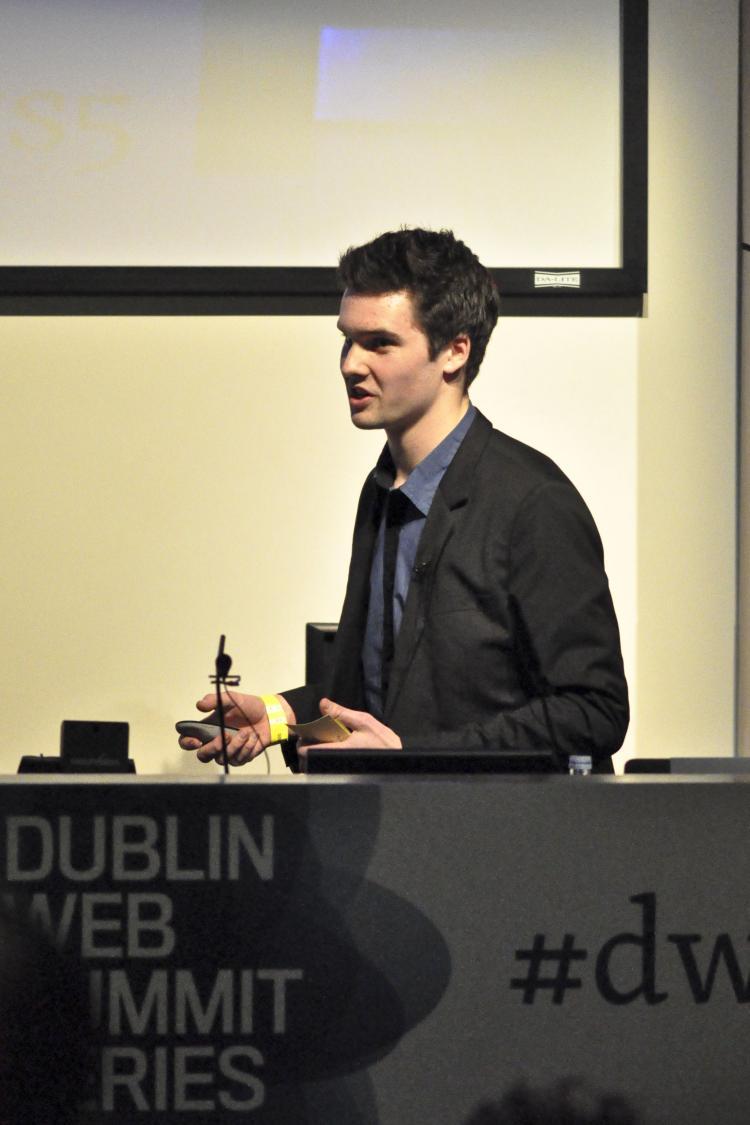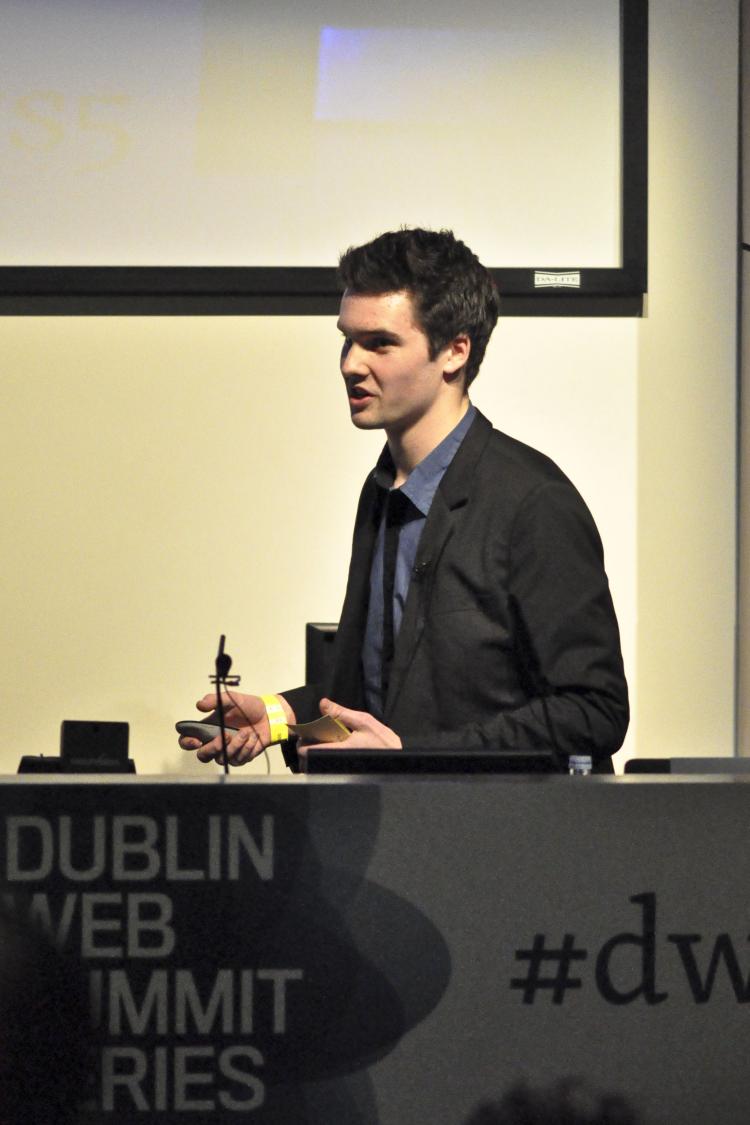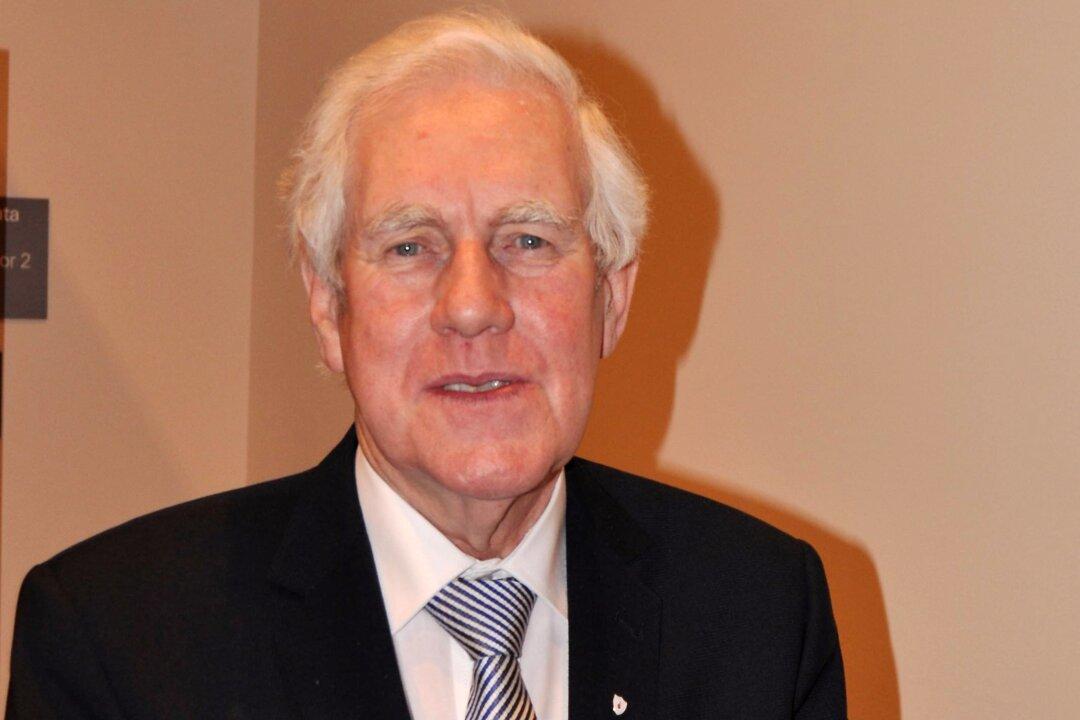Irish School-boy Recounts World’s First Hacking of iPod Nano
When news got out that the latest generation iPod Nano had been hacked, most people expected the culprit to be a technology super-geek from some former soviet-bloc country. When it transpired that the techie in question was from Ireland, and better still, that he was a 17 year old secondary school student, the tech world sat up and took notice.

James Whelton speaking at the Dublin Web Summit Series, Dublin Martin Murphy/The Epoch Times
|Updated:





